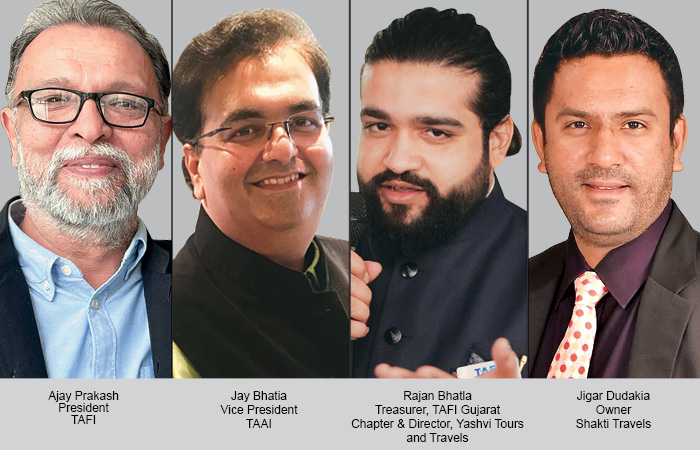The love-hate relationship between the agent and the airline is never ending. While airlines safeguard their bottom lines, agents feel neglected. Certainly, both parties will have to meet half-way for their mutual benefit. TRAVTALK speaks to key industry players on the issue.
Hazel Jain
The agent-airline relationship is something that all associations have been highlighting and working on for a while. Ajay Prakash, President, TAFI, says, “Unfortunately, airlines have cut back on staff, and everything is getting automated. But automation cannot solve everything. The human touch is critical. The agent is critical and, therefore, the relationship between the agent and the airline is important. But today that relationship is virtually non-existent.”
He adds that the IATA rules and regulations are also one-sided. “When it comes to making that little extra effort to facilitate the passengers, there is no one to reach out to. There is no remuneration from the airline directly except for volume-based business. But this is not a healthy situation for agents. Now, IATA is also talking about creating a whole new system for payments to be able to reach out to passengers directly,” Prakash says.
At the end of the day, agents give a guarantee to passengers and are liable for tickets issued by them on behalf of the airline. “We need to keep having a constant dialogue with airlines and not let them make rules unilaterally, which bypass the agent channel,” he exclaims.
Jay Bhatia, VP, TAAI, believes that while the relationship is cordial, airlines feel that agents have become too demanding, whereas the agents feel that they must be respected and permitted to do business with ease. “TAAI has been persistently following up with airlines to start permitting the agents to use their Travel Agent Corporate Credit Cards whereby monies can reach the bank in 24 hours and the agents can get an extended time limit from 14 to 28 days depending on the credit card. The airline wants to compete with its own sales channel and are offering huge discounts on their online platforms, along with additional miles. Agents are and shall always be an extended arm of the airlines and their most reliable sales channel, which the airlines must acknowledge,” Bhatia adds.
The airlines are not paying commissions and that is a shame, feels Bhatia. “A sales channel partner in no other industry globally not get remunerated by its principal. The agents have started to charge nominal service charges for issuing the tickets. Another major issue is on the payment cycle being weekly. Agents are not able to use their travel agency corporate credit cards while issuing tickets on the GDS, upfront payment on groups, irrespective of IATA credit of seven days should be applicable as per rules. Another major challenge faced by us is the irrational ADMs raised by the airlines along with administrative fees. This amount becomes too huge and is a loss to the agents,” he says.
Another issue are the uncertain cancellations. Rajan Bhatla, Treasurer, TAFI Gujarat Chapter & Director, Yashvi Tours and Travels, says, “For such situations, there must be some policy so that the traveller should not suffer from these mishaps, which is not their fault. When the travellers are cancelling their ticket, they are charged cancellation fee. Why should not the airline be penalised for cancelling the flight? They should be liable. There needs to be some guidelines for this. Our clients are booking tickets months in advance to get the cost benefit, especially to destinations where not many flights go like Bagdogra. When the airline cancels and the client has to book last-minute, their budget goes for a toss. Our client is not protected. In India, we do not have any policy, but internationally, airlines give another flight option either on their airline or any other airline and adjust the amount by themselves. The airlines take that responsibility.”
Inflated airfares
Meanwhile, Jigar Dudakia, Owner, Shakti Travels, is concerned about the practice of selling group air tickets to a few selected travel agents across India which airlines dry sell on a much higher rates than base price. “This practice often results in inflated costs for passengers and a lack of transparency in pricing. We believe, it is crucial for airlines to uphold fair and transparent pricing policies. Unfortunately, the prevalence of dry selling undermines these principles, creating confusion and frustration among passengers who expect clarity in their travel expenses,” he explains. He adds, “We are taking a stand against the practice of dry selling by actively choosing not to purchase air tickets from airlines or travel agents that engage in this practice. We believe consumers should have access to upfront and comprehensive pricing information. We urge these airlines to reconsider their approach to pricing and align with industry standards.”
 TravTalk India Online Magazine
TravTalk India Online Magazine





